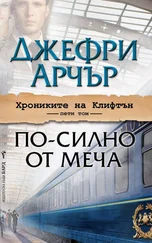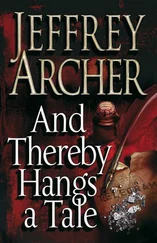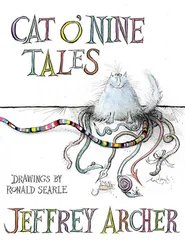However, it didn’t help that Luca Gentile died of a heart attack before Lieutenant Rossetti had set foot in Cortoglia. Some suggested Gentile was suffering from the strain of the whole affair, as the last murder in the town had been in 1892, when his great-grandfather had been the poliziotto . The only person left who seemed to know anything about the case was the examining doctor, who resided in the next village.
Rossetti called in to see Dr. Barone on his way to Cortoglia. He was not pleased to discover that Lombardi had been cremated, and his ashes scattered on the far side of the mountain within hours of his death, such was the locals’ hatred of the man. The one thing Dr. Barone could confirm was that only he and Luca Gentile had seen the body before it was taken away in a plastic bag.
“So you and I are now the only people who know how the murder was committed,” said Barone as he handed over the results of the autopsy to Rossetti.
Lieutenant Antonio Rossetti arrived in Cortoglia later that evening, to be told that the council had decreed he should reside in the mayor’s home until the murderer had been apprehended.
“After all,” the chairman said, “let’s get this over with so the young man can return to Naples as quickly as possible.”
The following day, Antonio set up office in the local police station, which consisted of two small rooms, one unoccupied cell, and a lavatory. After reading Dr. Barone’s report once again, he decided to leave his office and roam around the town, in the hope that someone might approach him wanting to offer information. But even though he walked slowly, and smiled a lot, people crossed the road rather than have to speak to him. He was clearly not looked upon as the Good Samaritan.
After a fruitless morning, Antonio returned to his office and made a list of those people who had most to gain from Lombardi’s death. He came to the reluctant conclusion that he would have to start with the members of the town council. He wrote on his notepad, Wine, Oil, and Truffles. He decided to start with Truffles, and called il Signor De Rosa’s office to make an appointment to see the councilor later that afternoon.
“Would you care for a glass of wine?” said De Rosa, even before the policeman had sat down.
“No, thank you, sir, not while I’m on duty.”
“Quite right,” said De Rosa. Although it didn’t stop him from pouring himself a large glass of the local white.
“Could we begin,” said Antonio, opening his notepad and looking down at his prepared questions. “As your family have lived in Cortoglia for over two hundred years—”
“Three hundred,” corrected the truffle master.
“I was hoping you might have an opinion on who killed Dino Lombardi?”
De Rosa refilled his glass and took a large gulp, before saying, “I most certainly do, Lieutenant Rossetti, because I killed Lombardi.”
Antonio looked surprised. A confession on his second day. He was already thinking about returning to Naples in triumph, and getting back to locking up some serious criminals.
“Are you willing to sign a statement to that effect?”
“Most certainly I am.”
“And you do realize, Signor De Rosa, that you will have to come to Naples with me, stand trial, and you may well spend the rest of your life in jail?”
“I have thought of little else since the day I killed the bastard. But I can’t complain, I’ve had a good life.”
“Why did you murder Lombardi?” asked Antonio, who accepted that motive almost always accounted for any crime.
De Rosa filled his glass a third time. “He was an evil man, Lieutenant, who terrified everyone who came into contact with him.” He paused, and took a sip of his wine, before adding, “He made their lives unbearable, mine included.”
“How in particular?” Antonio persisted.
“He not only levied a crippling sales tax on my truffles, but then demanded backhanders from my oldest customers. If it had been allowed to go on for much longer, he would have put me out of business.” Antonio kept on writing. “Last year the company made a loss for the first time since I took over from my late father,” said De Rosa. “The truth is, he got no more than he deserved.”
“I only have one more question,” the detective said. “How did you kill him?”
“Stabbed him with my truffle knife,” said De Rosa without hesitation. “It seemed appropriate.”
“And how many times did you stab him?”
“Six or seven,” he said, picking up a knife and giving a demonstration.
“I am sure you know, Signor De Rosa, it is a serious crime to waste police time.”
“Yes, of course I do,” said De Rosa, “but now I have confessed, you can arrest me and lock me up.”
“I would be delighted to do so,” said Antonio, “if only Lombardi had been stabbed.”
The truffle master shrugged his shoulders. “Does it really matter? Just tell me how Lombardi was killed, and I’ll confess to the crime.”
This was the first time Antonio had ever known someone admit to a crime they hadn’t committed.
“I’m going to leave, Signor De Rosa, before you get yourself into even more trouble.”
The truffle master looked disappointed.
Antonio closed his notepad, stood up, and walked out of the room without another word. He tried not to laugh as he passed a pen full of the most contented pigs he’d ever seen, almost as if they knew they would never be slaughtered.
Antonio was on his way back to the police station, when he spotted a pharmacy on the other side of the square, and remembered he needed a bar of soap and some toothpaste. A little bell above the door rang as he stepped inside. He stood by the counter for a few moments, before a young woman came through from the dispensary, and said, “Good morning, Signor Rossetti, how can I help you?”
When you’re the only person in town that nobody knows, everyone knows you.
The hardest criminals from the back streets of Naples couldn’t silence Antonio Rossetti, but a chemist from Cortoglia managed it with one sentence. She waited patiently for him to respond.
“I wanted a... bar of soap,” he eventually managed.
“You’ll find there’s quite a good selection behind you on the third shelf down.”
Antonio selected a bar, but ignored the toothpaste, because he wanted an excuse to return as soon as possible. He placed the soap on the counter and tried not to stare at her.
“Do the police expect to get everything free in Naples?” she asked, suppressing a smile.
“I’m so sorry,” said Antonio, quickly taking some coins out of his pocket and dropping them on the counter.
“Do come back if there’s anything else you need,” she said, passing him a small bag.
He almost ran out of the shop and quickly returned to the police station. He sat in his office and began to write up a report on his abortive meeting with De Rosa, but found it hard to concentrate. Once he’d done so, he returned to his list of names and crossed out Truffles.
Antonio decided he would next have to pay a visit to Paolo Caraffini, the owner of the olive oil company, but this time he wouldn’t call to warn him. He left the police station just after lunch, and set out for the factory on the outskirts of town, pleased he would have to pass the pharmacy on the way. He slowed down as he approached the shop and glanced through the window. She was standing by the counter talking to an elderly woman, and looked up as he passed by. She smiled, which caused him to quicken his pace and hurry away.
When Antonio arrived at the Caraffini Olive Oil factory, he asked the receptionist if he could see il Signor Caraffini.
“Do you have an appointment?”
“No,” he said, and produced a warrant card.
Читать дальше
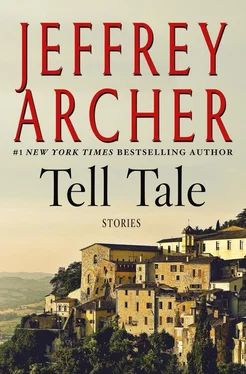
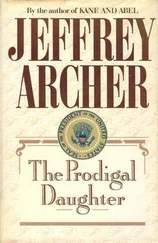

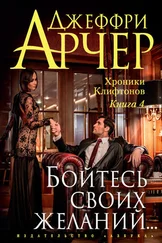
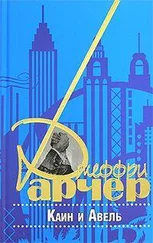
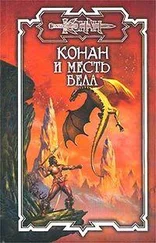
![Джеффри Арчер - The Short, the Long and the Tall [С иллюстрациями]](/books/388600/dzheffri-archer-the-short-the-long-and-the-tall-s-thumb.webp)
